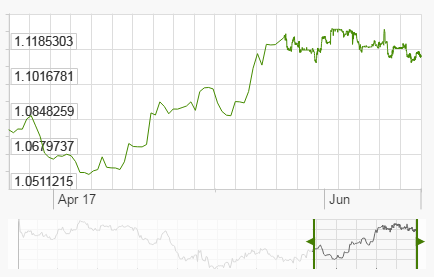TL;DR: It was not its creator who did that. Bitcoin's economic significance was gained similarly to any other money; but here, it started with pizza...
Let me answer by refuting the most persistently recurring false argument:
Crypto money has an intrinsic value created by clever design to provide utility in the form of safe/free/practical/... (i.e. "valuable") transaction medium.
[And any variants of this, including the accepted answer, unfortunately.]
Is it true? Of course. Does it explain Bitcon's trade value? No. How could it?
Intrinsic-value arguments consider only the system, the medium itself, failing to take into account the "real thing": its value-measuring function, the actual link that connects it to the (ever changing conditions of the) real world, where the actual economy works. (And excluding the real-world economy from the equation makes it impossible "by definition" to answer questions like: "how does it gain real economic value?")
Confusing the market value of Bitcoin (or any other money) with the utility value of the framework itself is completely missing the most important point. It's the same fallacy as saying that
"the US dollar has its market value because it's a handy way to
facilitate exchanging market value in comfortable transactions"
This should already sound vaguely suspicious, but one could immediately see the problem, when exchanging USD to other currencies. Shouldn't these plots be just boring flatlines then?

How many times have you seen those charts being explained by daily fluctuations in the usability/efficiency/design properties of the federal reserve system's machinery or the quality of coins and notes or fluctuations in the safety of credit card services etc., instead of real economical reasons?...
So, when looking at the same thing from that angle, everybody agrees that changes in currency prices (values) are caused by changes in real economic processes, events that affect actual markets (i.e. people...), rather than changes in the measuring tool (money), that only exists to map real market values to abstract numbers.
But then it directly implies that market value of any currency (crypto or fiat or commodity) comes from the market, not from the money itself!
Just watch for a minute the wild fluctuations of different crypto coins real-time at an exchange. Those instantaneous value changes are clearly not caused by corresponding changes in any inherent properties (like "fluctuations of clever design", or "momentary changes of hash safety" or "degree of free access" or real-time network load etc.).
Those value changes happen in the minds of individual traders, because that's where markets work, i.e. where all the market values are created.
As others correctly noted: it all boils down to trust (which is, BTW, just a glorified word for a basic cooperative game strategy element).
Market value of (any sort of) money emerges from bootstrapping the network effect of mutual trust:
The first time someone trades a money token to anything else(!), the initial exchange value for that money is (irrevocably) established.
(See @DavideC's nice comment, right under the OP, about first selling a pizza for BTC!)
And as soon as word goes around about such a transaction being possible, a market is created around that money, too.
And the next transaction will be priced based on knowledge about the previous ones (providing a quasi-continuous function for trade value changes).
Those value changes depend on a whole bunch of (known and unknown) factors.
As long as there's faith that another transaction is doable with that money, its market will be alive.
So, to recap: my money has value to me if (and only if) I can trust that people would give me stuff for it. And those others need to maintain the same trust, too, to keep the market alive, and they also need to communicate properly to keep market values in sync with reality.
Note:
It's still true that a viable money system does have reasonable utility value, too, which is, indeed, inherent to it. Part of that value may come from the scarcity of a commodity (like gold), the guarantees of a powerful government, the well-developed infrastructure of banks, or certain mathematically proven properties of an automated system etc.
That inherent utility value is even a factor that may affect the trade value of the money! (See e.g. how recent Ethereum ICO overloads made the market value of Ether plunge, or see how juicy-looking coin startups "backed" with the promise of shiny new tech ideas tend to overprice the market value of their tokens.)
However, these effects are only childhood diseases of the new digital money world: as soon as the technological problems get gradually ironed out, the excitement around them will also fade, affecting the market value less and less. If everything goes well, the money system just gets out of the way: as nobody really cares how much minting a dime actually costs, or what database backends a bank transfer goes through, nobody would get high from the world "blockchain" a few years from now.
And to vividly illustrate how irrelevant those "inherent" design or institutional properties of a money system are in terms of its actual market value, just remember that shells, like money cowry could happily hold any real and arbitrary trade value, despite having none of the sophistication of a blockchain currency. But it's probably best demonstrated by the most arcane monetary system of all time: the Rai stone "coins" of Micronesia. :)

See also: "How does money acquire its value?"


